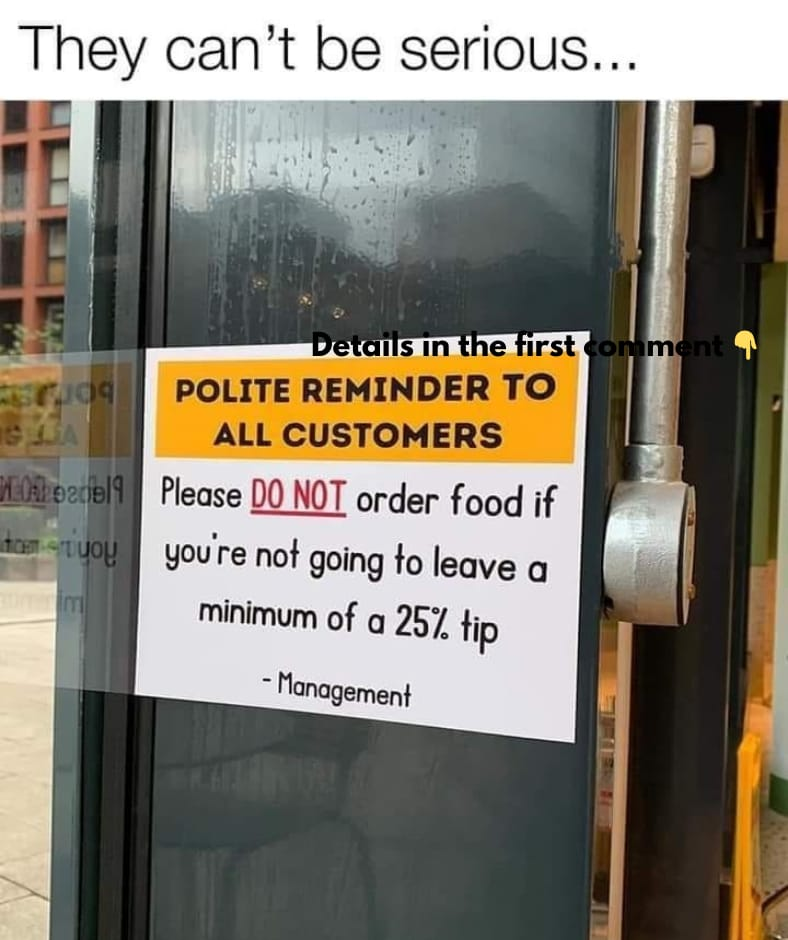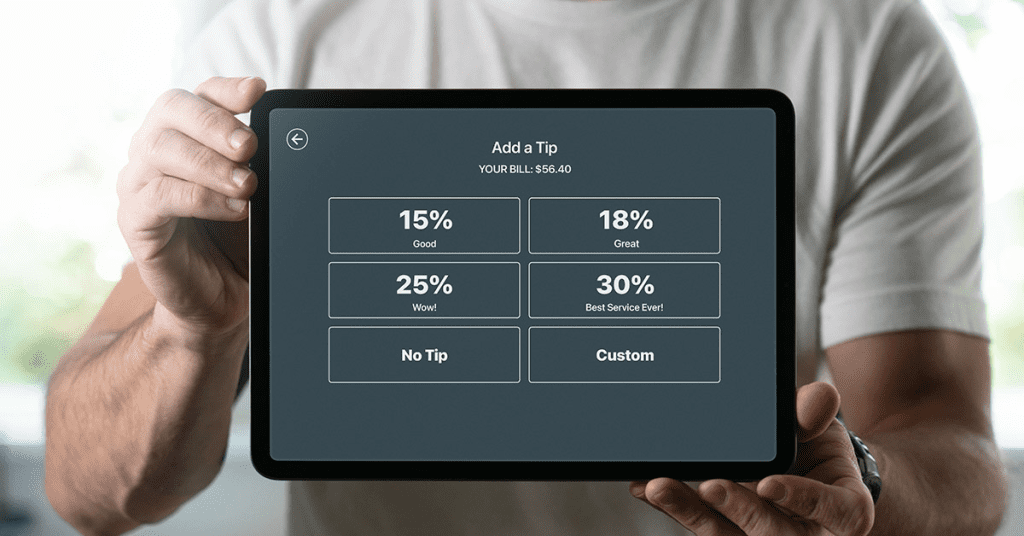You’ve probably felt it—that moment of hesitation when the iPad flips around, showing tipping options starting at 20%. Your $4 coffee suddenly comes with a moral dilemma. That’s exactly the kind of moment that sparked controversy when a man boldly declared online, “I refuse to pay a 25% tip.” And with that, the internet lit up.

How Did We Get Here? The Origins of Tipping in the U.S.
Tipping didn’t start in the U.S. In fact, it was imported from Europe during the late 1800s. But here’s where it gets messy: after slavery was abolished, some employers saw tipping as a loophole. They could avoid paying newly freed Black workers a fair wage by making them depend solely on customer tips. Instead of being a nice gesture, tipping became an excuse for businesses to skip out on proper compensation.
Many critics at the time called it “un-American.” And yet, the system stuck. Over a century later, many American service workers still live paycheck to paycheck because their hourly wage—sometimes as low as $2.13—isn’t enough without tips.
Video: DoorDash Delivery Driver Upset Over $5 Tip
When “Thanks” Turned Into a Demand
Tipping used to be a reward. A way to say, “Hey, that was great service!” Now, it feels more like a requirement—one you can’t skip even when the service was just… okay.
With digital checkouts popping up at cafés, food trucks, and retail stores, tip prompts are now built into nearly every purchase. Pre-filled buttons for 20%, 22%, or 25% can make you feel guilty for hitting “custom amount.” And tipping for takeout? That’s where things really get confusing.
Do we tip because we’re grateful—or because we’re pressured?
One Man’s Refusal Sparks a National Debate
That brings us to Dustin Anderson. His statement—“I’m done tipping”—hit a nerve. He wasn’t angry at workers. He was angry at the system. Dustin argued that tips should be earned for going above and beyond, not expected for performing basic job duties.
His post went viral. Thousands chimed in: some agreed, calling tipping a “scam” that’s spiraled out of control. Others were furious, accusing Dustin of being inconsiderate and selfish.
One person asked, “Why should a server make more for delivering a $60 steak than a $15 salad when the effort is the same?” It’s a fair point—and one that shows just how murky the tipping waters have become.
But Wait—Workers Say Tips Are Their Lifeline

Now let’s flip the coin. For millions of workers, tips are the reason they can pay rent or buy groceries. Because their base pay is so low, gratuities aren’t just nice extras—they’re vital.
One former waitress said, “If you don’t tip, we can’t survive.” That’s hard to ignore. Serving tables isn’t just balancing trays and refilling drinks. It’s long hours, aching feet, and nonstop multitasking—all while smiling through it.
So, while consumers debate the fairness of tipping, service workers are just trying to make ends meet.
The Emotional Toll of Tipping Expectations
Beyond the dollars and cents, tipping comes with a psychological cost. When a checkout screen flashes a 25% suggestion, it’s not just about money—it’s about guilt, pressure, and judgment.
It’s like being forced to make a moral decision in front of everyone—while the barista watches.
And stories about delivery drivers canceling orders over low tips only add fuel to the fire. It leaves customers wondering: “If I don’t tip enough, will I be punished?”
Who’s Really Responsible? Spoiler: It’s Not the Customer
Video: Restaurant Owner CRASHES OUT On Customer After Not Tipping..
Critics argue that tipping culture is a clever way for businesses to dodge responsibility. By leaning on customers to pay workers, employers save big on labor costs. Meanwhile, workers deal with financial instability, and customers feel trapped in awkward tipping scenarios.
In contrast, many European countries have taken a different route. Instead of relying on tips, they pay service workers a fair, livable wage. In some places, a service charge is automatically included in the bill. The result? Less stress for everyone involved.
Can We Find a Middle Ground?
Completely scrapping tipping in the U.S. would take a major cultural shift—not to mention new labor laws. But that doesn’t mean we’re stuck with the current mess.
Here’s an idea: what if we tipped more selectively, focusing on exceptional service rather than tipping out of habit or guilt? And what if businesses stepped up to offer better wages, reducing their employees’ reliance on tips?
It’s not a perfect solution, but it’s a step in the right direction.
Where Do We Go From Here?

Tipping isn’t just a small part of dining out anymore—it’s become a hot-button issue tied to fairness, economics, and ethics.
If we want real change, we’ll need more than viral debates. We’ll need a cultural reset. That might mean rethinking the entire pay structure for service workers. Or maybe it’s just being more mindful when we tip—knowing why we do it and when it truly makes sense.
Conclusion: It’s Time to Rethink the Rules
Tipping started as a kind gesture, but it’s become something much more complicated—and often uncomfortable. It places too much burden on customers, too little responsibility on employers, and too much stress on workers trying to survive.
Whether you’re all for tipping or totally against it, one thing’s clear: the system needs fixing.
Let’s bring tipping back to what it was meant to be—a heartfelt thank-you, not a forced transaction. And maybe, just maybe, that change starts with one person saying, “No more 25%.” Not out of cruelty, but as a call to rethink a broken system—for everyone’s sake.


